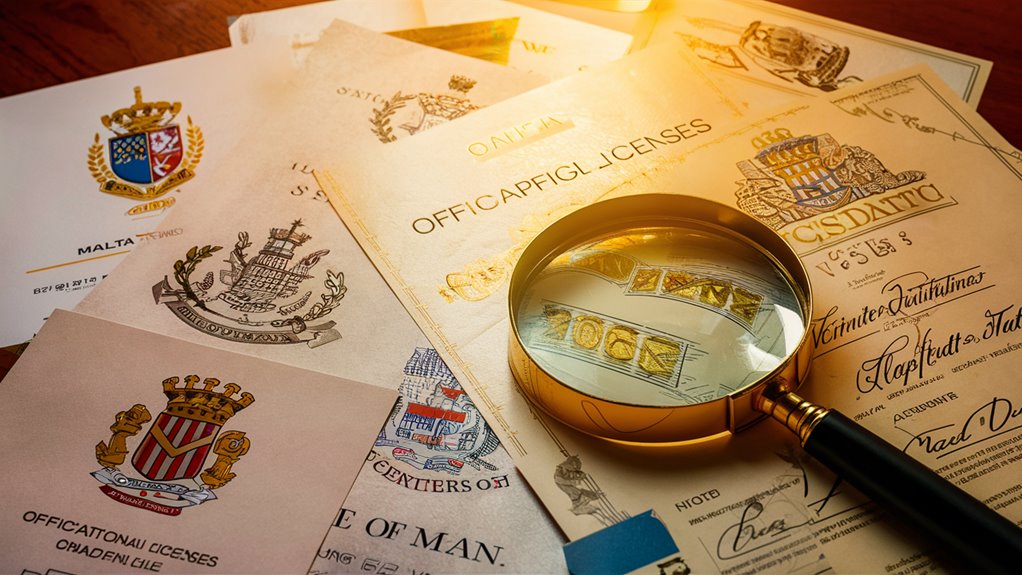Why Betting Rules Are Key: A Simple Guide

Main Rule Sets and Their Importance
Betting papers are key documents guiding both online and land-based betting globally. The most recognized groups include the UK Betting Group (UKGC), Malta Gaming Group (MGA), and Isle of Man Betting Group.
Key License Needs
Money Needs
Groups are required to maintain significant funds ranging from $1-3 million to ensure the safety of player money and smooth operations. The cost of acquiring a license varies from $25,000 to $500,000, reflecting the process’s complexity.
Security Steps and Compliance
Robust security measures are essential for obtaining a betting license, including:
- Advanced data encryption systems
- Safeguarding player funds
- Know Your Customer (KYC) procedures
- Anti-money laundering measures
Safe Betting Tools
Licensed entities must implement comprehensive safe betting tools such as:
- Options to voluntarily exclude oneself from betting
- Deposit limits
- Reality checks
- Mechanisms to prevent gambling issues
Application Process and Timeframe
The process for obtaining a license typically lasts between 6-12 months and involves:
- In-depth background investigations
- Financial assessments
- Evaluation of technical systems
- Review of policy documents
Impact on Businesses and Players
Licensed platforms offer enhanced player protection and operational transparency, ensuring:
- Equitable betting conditions
- Secure financial transactions
- Regular compliance audits
- Professional dispute resolution
These regulatory frameworks establish a secure and regulated environment, benefiting all stakeholders in the global betting industry.
Why Betting Papers Are Key
Vital Insights into Betting Papers
Licensing Requirements
Betting papers are crucial for engaging in legal and legitimate betting operations worldwide.
Operating a licensed betting facility necessitates compliance with strict regulations that protect both operators and players in today’s technologically advanced gaming environment.
Player Protection and Financial Management
Licensed gaming platforms are obligated to implement comprehensive player protection strategies, which include:
- Rigorous financial auditing
- Fair gameplay procedures
- Secure betting tools
- Reliable payment methods
- Robust data protection policies
Financial Regulations and Anti-Money Laundering
Licensed betting sites maintain stringent oversight through:
- Transparent financial transactions
- Routine financial audits
- Anti-money laundering (AML) protocols
- KYC verification procedures
- Compliance with tax obligations
Dispute Resolution and Player Rights
The betting license regulations establish clear guidelines for:
- Ensuring player safety
- Formal dispute resolution processes
- Legal handling of disputes
- Ensuring timely payouts
- Addressing gambling-related issues
Collaboration in the Industry
Licensed platforms can collaborate with:
- Regulated payment processors
- Licensed software vendors
- Professional gaming associations
- Established security protocols
- Verified gaming procedures
Meeting all licensing requirements ensures that platforms provide a secure and trustworthy gaming environment, benefiting all while maintaining high regulatory standards.
Prominent Locations for Licensing
Key Locations for Gaming Licenses
Leading Global Regulatory Bodies
The United Kingdom Gambling Commission (UKGC) is highly regarded for its role in gaming regulation, implementing robust operational standards and extensive player protection measures. Their comprehensive supervision sets a global benchmark for safe betting and regulatory compliance.
The Malta Gaming Authority (MGA) also plays a significant role, offering a regulatory framework that supports European online betting operations. Their licensing process promotes operational transparency and player protection, making it a strategic option for international gaming operators.
Leading Regulatory Organisations
The Isle of Man and Alderney Gambling Control Commissions offer top-tier licensing frameworks focused on:
- Regulatory adherence
- Transparent financial flows
- Anti-fraud measures
- Securing player funds
Gibraltar’s regulatory body is similarly esteemed, excelling through:
- Rigorous regulatory requirements
- Comprehensive anti-money laundering measures
- Thorough platform audits
Elevated Regulatory Standards
These jurisdictions maintain high standards through:
- Thorough scrutiny of gaming platforms
- Rigorous financial requirements and audits
- Advanced monitoring systems
- Stringent customer care standards
- Transparent operational practices
Licenses from these regions symbolize the highest regulatory standards, ensuring platforms adhere to robust global gaming norms and sustain optimal operational practices.
Requirements and Licensing Processes
Comprehensive Guide to Licensing Requirements and Procedures
Core Licensing Requirements for Gaming Platforms
Gaming platforms must satisfy stringent criteria to obtain licenses from premier licensing bodies.
Thorough examinations evaluate financial viability, ownership structures, and comprehensive operational plans.
Required documentation undergoes meticulous scrutiny regarding funding sources, operational methodologies, and stringent anti-money laundering (AML) measures.
Timeline and Financial Requirements
The average timeline to secure a license extends over 6-12 months and involves substantial financial commitments. Mandatory submissions include:
- Extensive background checks of key personnel
- Operational blueprints of gaming platforms
- Strategies and interventions for ensuring safe betting
- Licensing application fees varying from $50,000 upwards, contingent on jurisdiction
Responsibilities Post-Licensing
Post-licensing responsibilities necessitate adherence to regulatory stipulations:
- Routine reporting
- Scheduled compliance checks
- Ensuring player safety
- Meeting technological standards stipulated by licensing jurisdiction
- Maintaining player funds in insured financial institutions
A competent team is essential for ongoing compliance monitoring to sustain regulatory standards.
Platforms must adhere to jurisdictional technological standards to ensure proper financial management through sanctioned banking options.
Financial Considerations
Examination of Licensing Costs and Financial Commitments

Initial Licensing Fees and Financial Prerequisites
The initial fees for applying for gaming licenses range from $25,000 to $500,000, varying by jurisdiction and license type.
Platforms must demonstrate tagged reserves of $1-3 million to affirm operational viability. These reserves ensure continuity and compliance in the competitive gaming landscape.
Ongoing Financial Obligations
Annual renewal fees and compliance costs represent a significant monetary commitment, often constituting 1-15% of gross gaming revenue.
Investments in risk management frameworks and safeguarding player interests are additional financial impacts affecting profitability.
Expenditures for Legal and Compliance Stability
Key financial allocations encompass:
- Legal advisory fees: $300-500 per hour
- Compliance staffing costs: $60,000-120,000 annually
- Technical system audits: $10,000-50,000 per assessment
- Payment reserve allocations: Varies by platform scale
Accounting for Uncertainties
Prudent platforms maintain a 20-30% budgetary buffer to address:
- Evolving regulatory directives
- Adaptation requirements for compliance
- Infrastructure enhancement costs
- Market landscape shifts
- Strategic risk management initiatives
These comprehensive financial strategies ensure continuity and adherence in the regulation-intensive gaming environment while meeting jurisdictional requirements.
Player Protection and Compliance Standards
Ensuring Player Safety and Adherence to Compliance Standards
Player Verification Requirements
Verification protocols are the foundation of secure gaming environments.
Comprehensive identifications and KYC standards are critical for verifying player age, identity, and provenance 온카스터디 인증리스트 추천
Emerging digital authentication methods ensure regulatory compliance while preventing fraudulent activities.
Security Measures and Data Protection
High-level encryption measures safeguard critical player data and transactional information. Gaming platforms must employ:
- Military-grade data encryption
- Secure payment gateways
- Continuous financial oversight
- GDPR compliance
- Routine security audits and assessments
- Fun and Rewarding Experience
Responsible Gaming Tools
Enhancing Player Security
- Options for self-exclusion from betting
- Modifications to deposit thresholds
- Mandatory cooling-off periods
- Transparent odds display
- Clear presentation of potential returns
Mitigating Gambling Disorders
Automated surveillance systems analyze player behavior to detect potential gambling problems. Additional protection measures include:
- Staff training
- Swift response protocols
- Support for gambling-related concerns
- Self-assessment tools
- Frequent risk evaluations
Regulatory Documentation and Reporting
Maintaining comprehensive activity records ensures compliance through:
- Detailed event logs
- Security protocol documentation
- Regular compliance audits
- Operational system logs
- Assessment reports
Monitoring Compliance and Assurance
Ensuring Regulatory Compliance and Oversight in Gaming Venues
Essential Regulatory Framework
Comprehensive surveillance systems and internal controls establish the regulatory framework in gaming venues.
Establishments must engage in continuous financial tracking, conduct regular compliance audits, and utilize automated reporting tools to ensure compliance standards.
Critical Elements of Compliance
Know Your Customer (KYC) protocols, anti-money laundering (AML) measures, and responsible gambling mechanisms form the cornerstone of effective compliance strategies. Gaming venues must vigilantly monitor:
- Gaming operations
- Financial transactions
- Customer interactions
Regulatory Inspections and Audits
Gaming regulatory authorities conduct comprehensive inspections and evaluations to ensure compliance. Venues must demonstrate:
- Adherence to designated protocols
- Maintenance of required documentation
- Prompt reporting of suspicious activities
- Accurate tracking of gambling patterns
- Effective financial management measures
- Thorough monitoring of customer behavior
Risk Management and Remediation
Failure to comply can result in severe consequences, including license suspension or revocation. Key compliance elements include:
- Implementation of compliance software
- Regular staff training
- Staying updated with evolving regulations
- Adhering to local requirements
Common Licensing Constraints
Key Constraints in Licensed Betting Venues
Operational Boundaries
Licensing constraints heavily influence the operations of betting venues through comprehensive regulatory frameworks.
These common constraints define the operational parameters of licensed betting entities.
Game Type Constraints
Licensed gaming venues must adhere to strict constraints on the types of games offered. Licenses often specify permissible games:
- Slot machines
- Table games
- Sports betting
- Various poker formats
Financial Requirements and Management
Mandatory Reserves
Required financial reserves are essential for ensuring player payouts.
Operational funds must be segregated from player funds, ensuring financial security and accountability.
Financial Management
Licensed venues are restricted to engaging with sanctioned financial entities and maintaining regulated payment systems. This includes:
- Approved payment processors
- Regulated banking partnerships
- Secure transaction mechanisms
Advertising and Promotion Regulations
Advertising regulations establish clear guidelines for promotional activities:
- Emphasis on responsible gaming messaging
- Transparent presentation of terms
- Targeting limitations based on jurisdiction
- Age-appropriate audience restrictions
Jurisdictional Restrictions and Operational Limits
Jurisdiction-based restrictions define permissible operational areas:
- Operations confined to authorized regions
- Rigorous checks on player locations
- Surveillance of cross-border transactions
Required Staffing Roles
Mandatory roles include:
- Compliance officers
- Anti-money laundering specialists
- Responsible gaming managers
- Risk assessment managers
Player Safety Initiatives
Player protection measures necessitate the implementation of:
- Temporary self-exclusion options
- Betting limit controls
- Mandatory cooling-off periods
- Systems for identifying gambling problems


